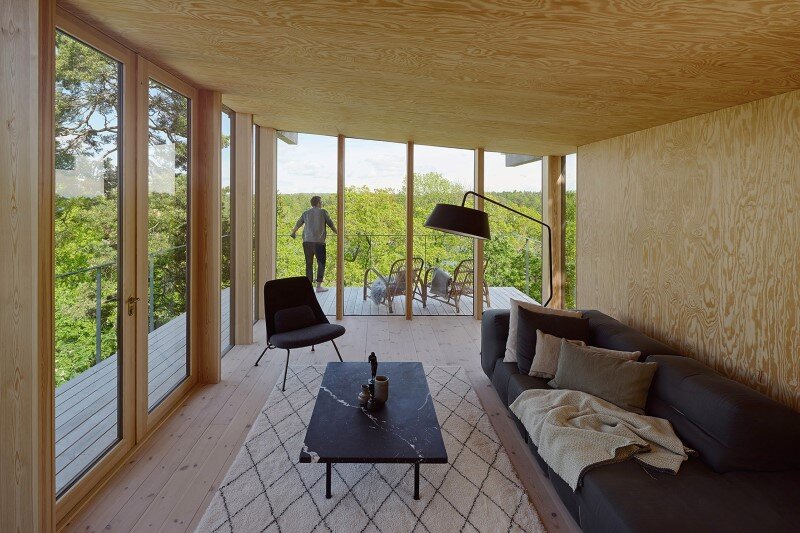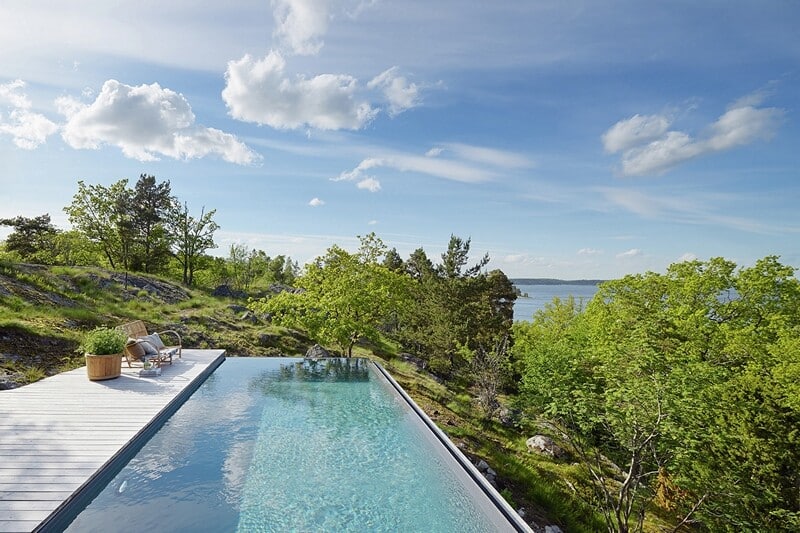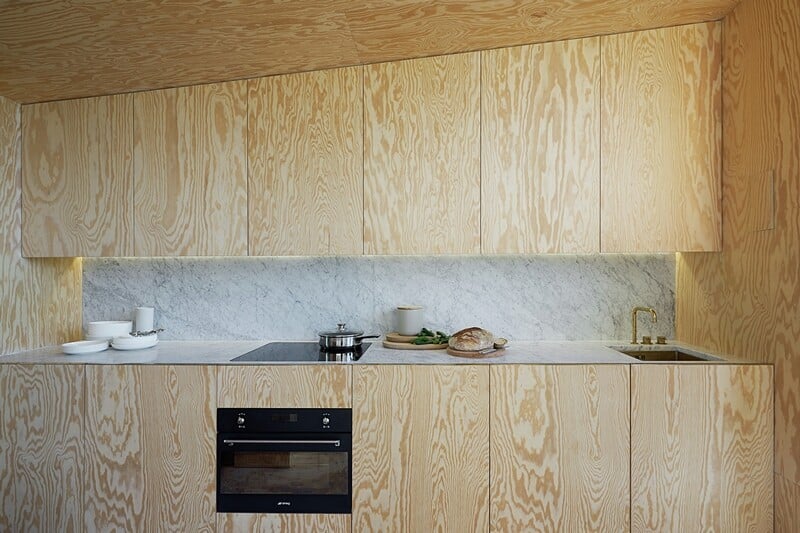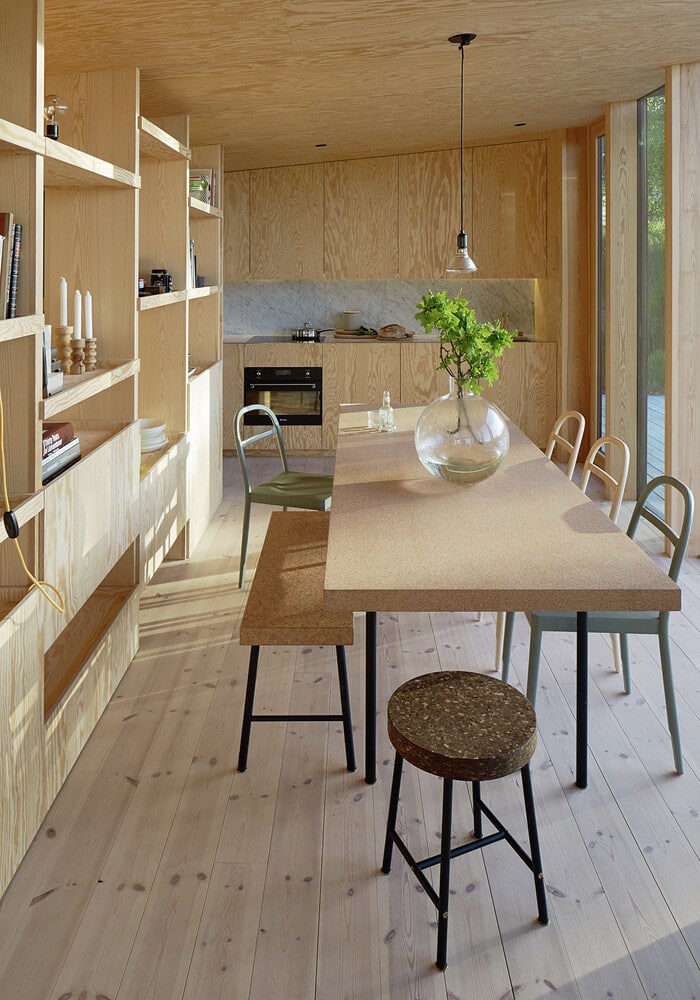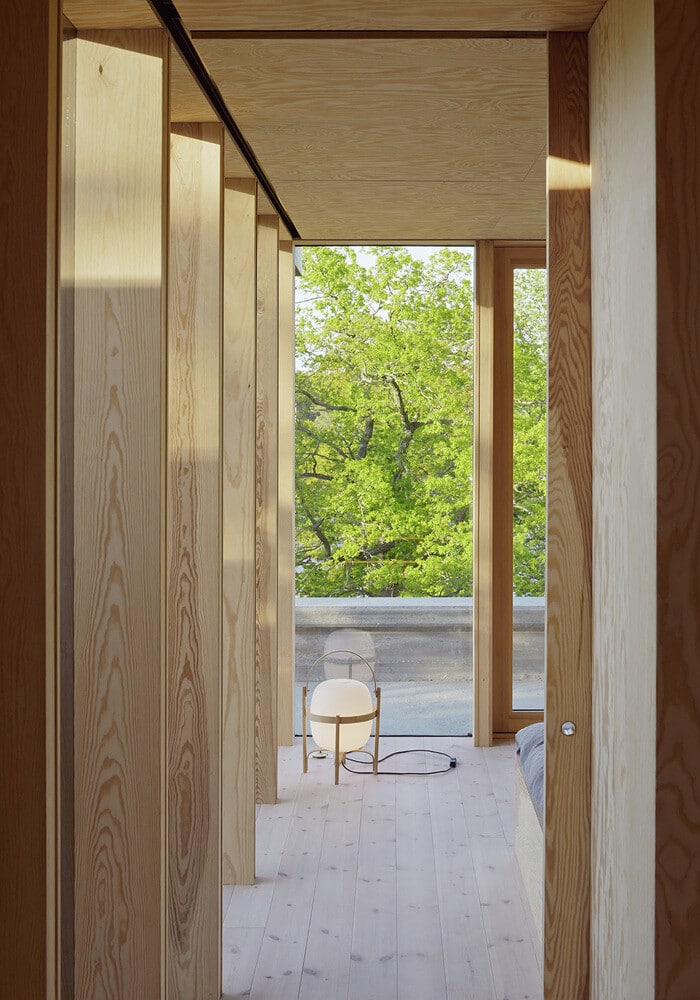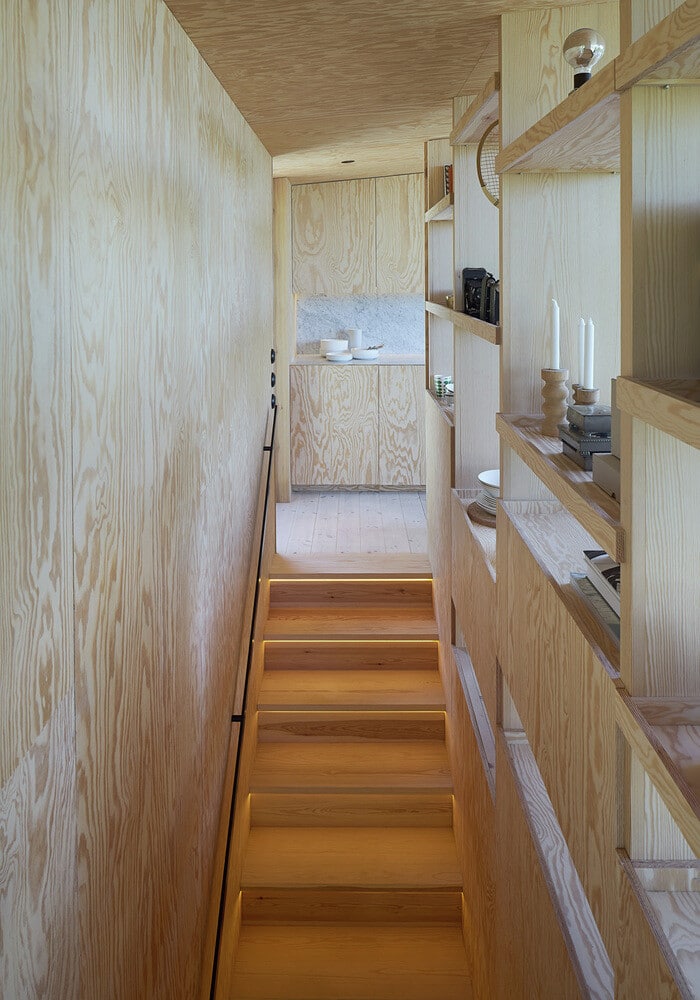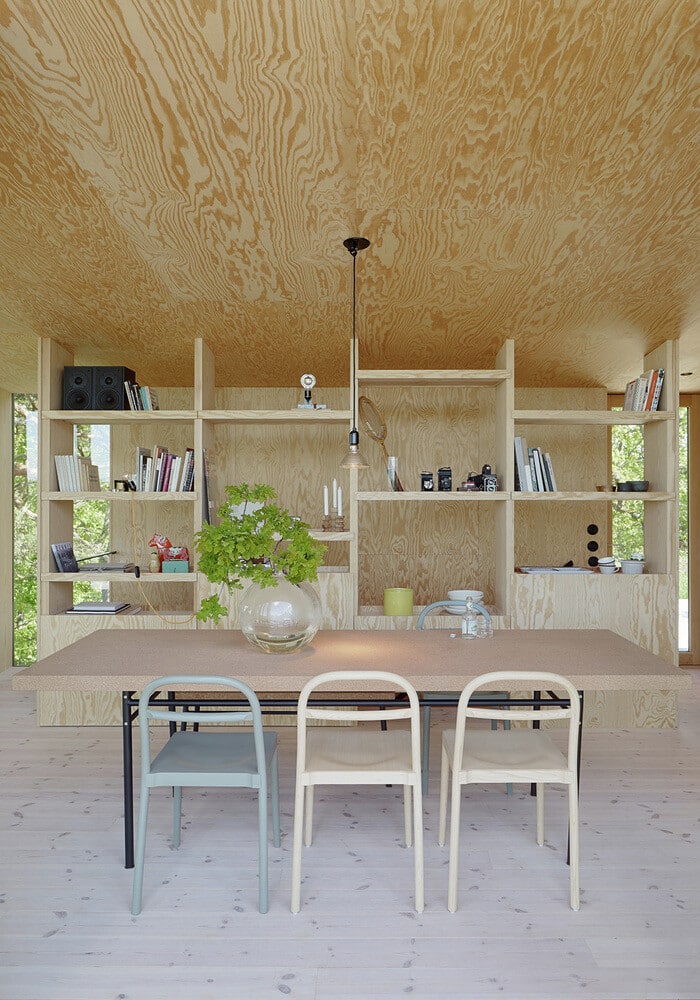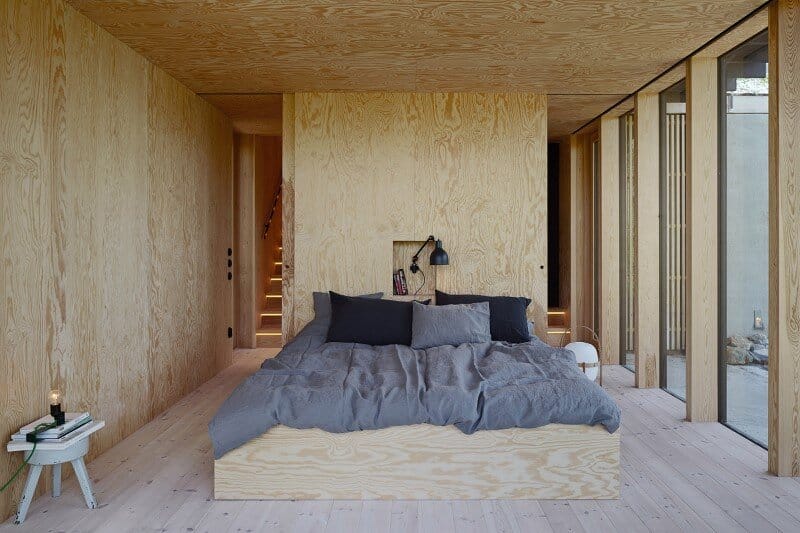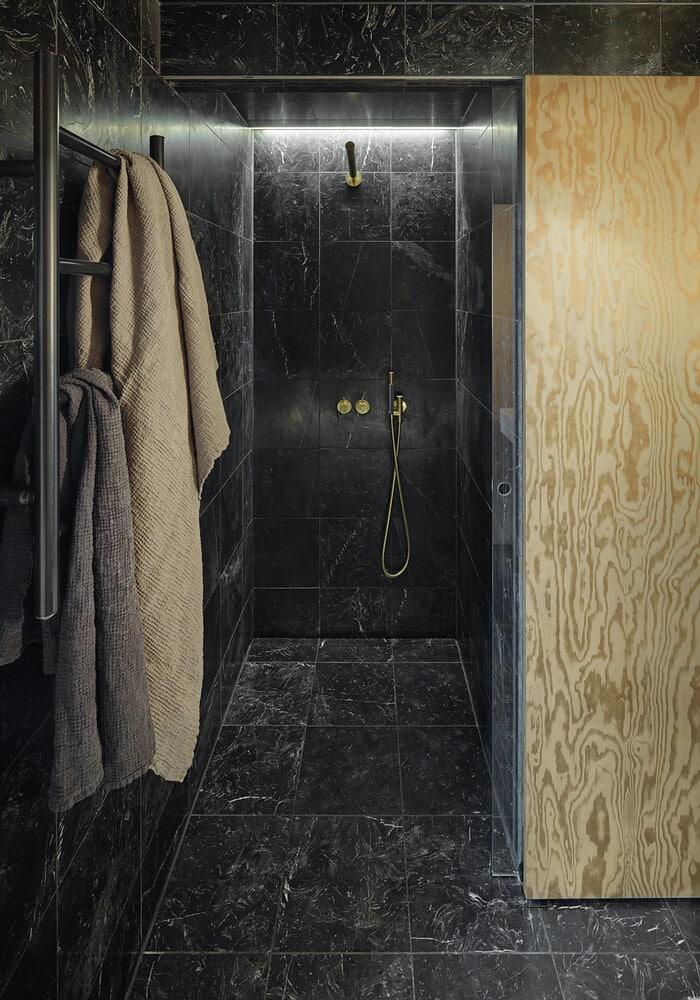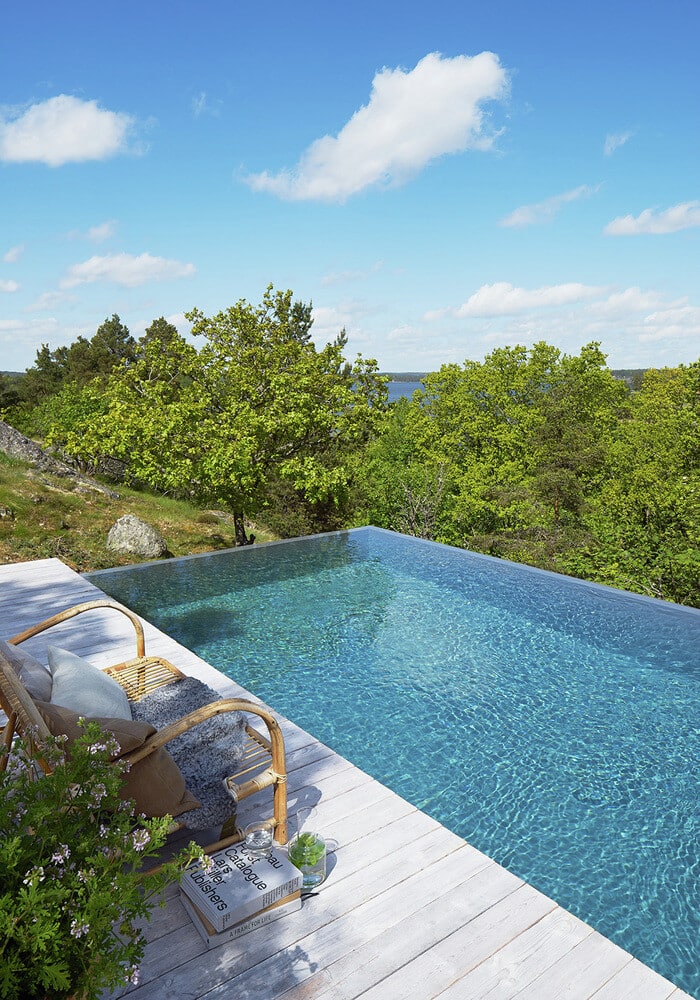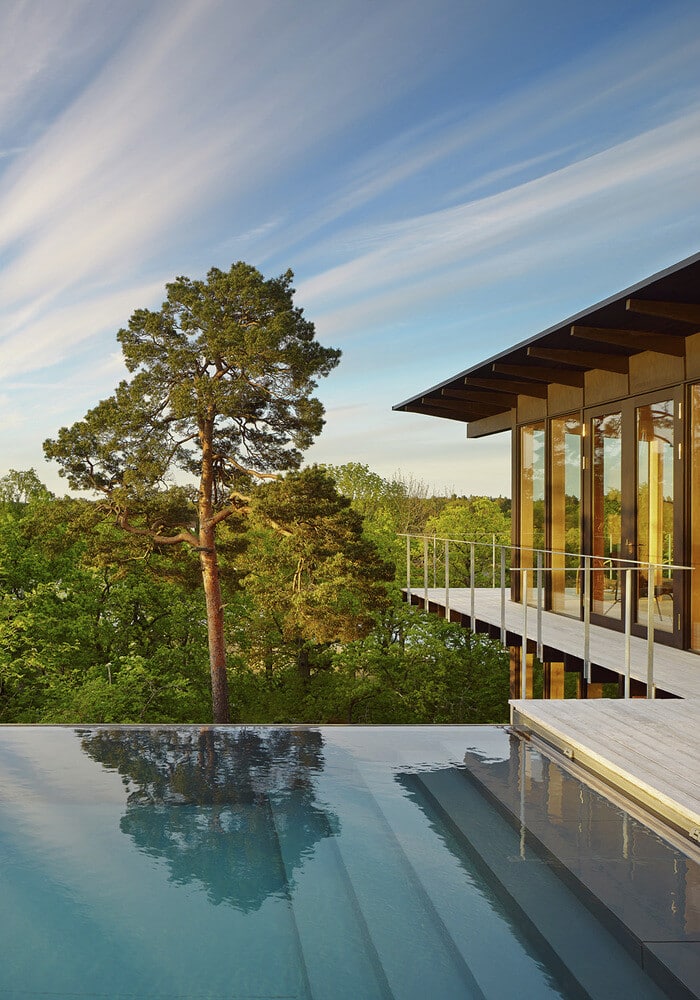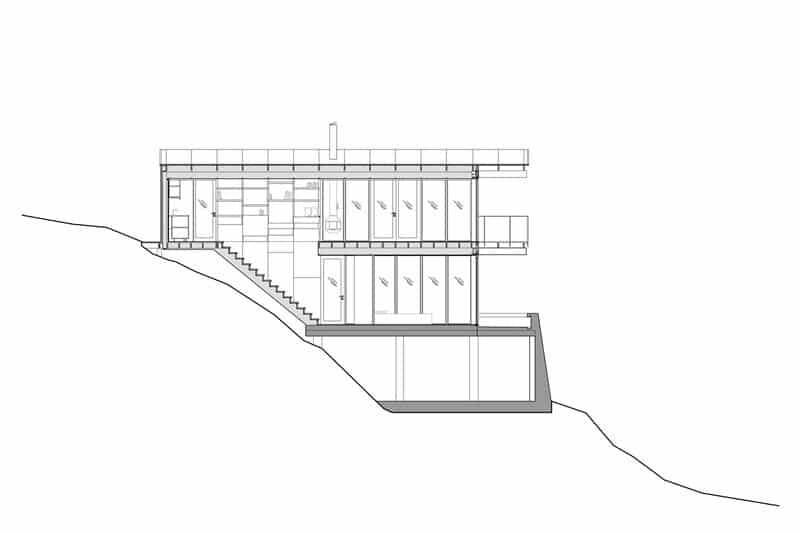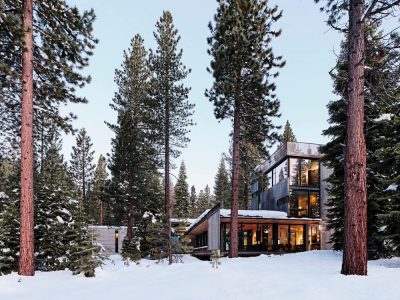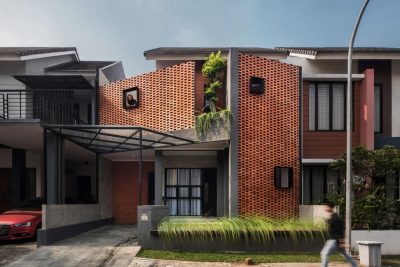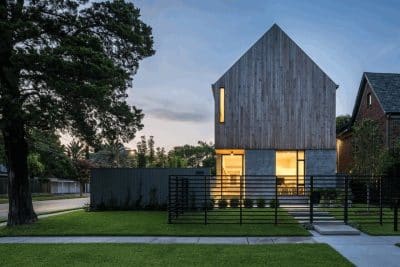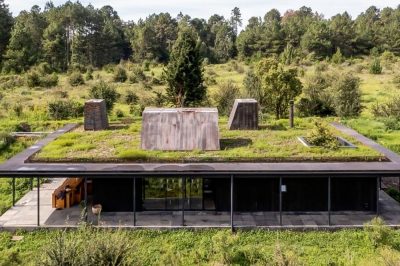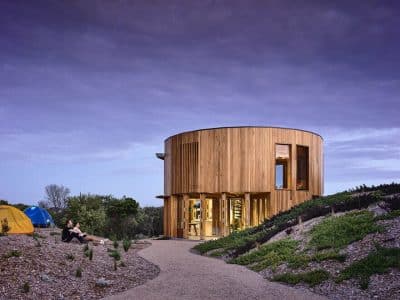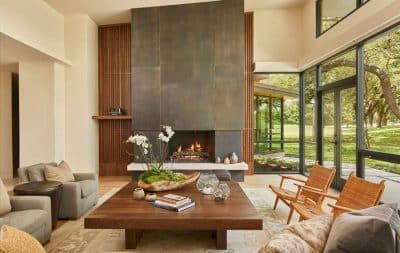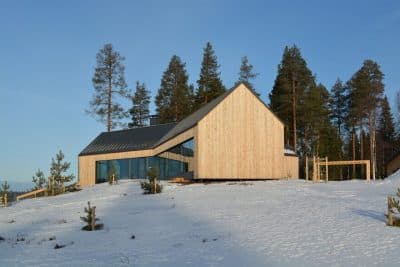Aspvik house was completed recently by Andreas Martin-Löf Arkitekter. The house has 70 sqm and is located in Aspvik, Sweden, near Stockholm.
Description by Andreas Martin-Löf: In 1917, renowned restaurateur Sten Hellberg built a chinese-style tower high above Torsbyfjärden with a view overlooking the shipping lane towards Stockholm. The six hectare plot has been in the current owners’ family since the 1950s. In the 1960s a single-storey, period-style addition to the tower containing new living room, kitchen, bedroom and bathroom spaces was added.
The new building is made up of architectural elements that relate both to the original tower and the 1960s extension. Together they create an ensemble of buildings from three different eras. The new building is placed on a steep hillside. When viewed from the main house above, the new volume appears like a small outbuilding inserted between two pine trees. However, the sloping site allows for a two-storey house to be placed without competing with the original house for dominance. The lower floor includes an entrance hall, bedroom, bathroom and a sauna which is tucked into a crevice in the stone hillside. A staircase leads to a single, large room on the upper floor which contains kitchen, dining and living areas.
The house is constructed in steel, timber and glass and is placed on a concrete plinth. The faces of the plinth are angled by 5 degrees, which is reminiscent of traditional pagoda foundations and a subtle reference to Sten Hellberg’s chinese-style tower. The custom-made glazing is attached directly to the structure – with detailing adapted from the 1960s extension, while the characteristic projecting roof is borrowed from the existing tower. A sloping cast in-situ retaining wall creates an infinity swimming pool to the west and morning terrace to the east which visually cut through the lower storey. In the evening the pines are transformed into bonsai trees that reflect in the dark water of the pool. Photography Åke E:son Lindman. Visit Andreas Martin-Löf Arkitekter


